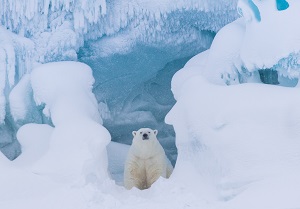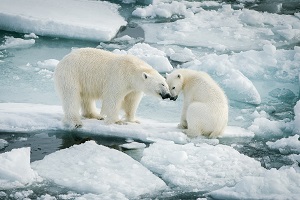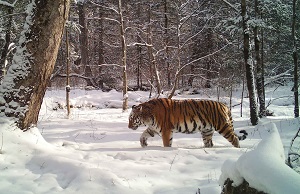Rosneft Celebrates World Animal Protection Day

On 4 October, the world community celebrates World Animal Day, which was established in 1931 to draw people’s attention to the problems of the rest of the planet’s inhabitants.
Responsible attitude towards the environment is an integral part of the Rosneft’s corporate culture and one of the key principles of its business. The Company has been a member of the UN Global Compact for more than 10 years and in 2018 reaffirmed its commitment to 17 UN Sustainable Development Goals.
Rosneft has set the following environmental targets for the period until 2035:
- to minimise the impact on the environment, particularly by introducing the best technologies available and consequently increasing the efficiency of waste management, land remediation, wastewater treatment and emissions;
- to introduce the principles of a circular economy;
- to protect and conserve ecosystems and biodiversity.
Biodiversity is crucial for human development and well-being, an essential element for sustainable development. Rosneft allocates the necessary support for biodiversity conservation in the regions where it operates and prioritises the sustainability of ecosystems and its impact on local communities.
 Rosneft makes a strong contribution to the development of the national project Ecology, including participation in the federal project Biodiversity Conservation and Ecotourism Development. The Company performs extensive work to assess the sustainability of Arctic ecosystems, and organises research into the dynamics of key indicator species: the polar bear, Atlantic walrus, wild reindeer and the ivory gull, a rare species of gull listed in the Red Book of the Russian Federation.
Rosneft makes a strong contribution to the development of the national project Ecology, including participation in the federal project Biodiversity Conservation and Ecotourism Development. The Company performs extensive work to assess the sustainability of Arctic ecosystems, and organises research into the dynamics of key indicator species: the polar bear, Atlantic walrus, wild reindeer and the ivory gull, a rare species of gull listed in the Red Book of the Russian Federation.
 Since 2013, all polar bears in all Russian zoos are in the custody of the Company to be provided with adequate nutrition, veterinary service and improved living conditions. Rosneft is also implementing a programme to rescue and rehabilitate young polar bears left in the wild without maternal care. In 2019, the Company participated in the rescue of two bears — a year-old Marfa in Norilsk and Ursula from Dikson Island in the north of the Krasnoyarsk Region. Both bears are currently kept in the Roev Ruchey Park of Flora and Fauna in Krasnoyarsk, where a new spacious enclosure for them is about to be completed.
Since 2013, all polar bears in all Russian zoos are in the custody of the Company to be provided with adequate nutrition, veterinary service and improved living conditions. Rosneft is also implementing a programme to rescue and rehabilitate young polar bears left in the wild without maternal care. In 2019, the Company participated in the rescue of two bears — a year-old Marfa in Norilsk and Ursula from Dikson Island in the north of the Krasnoyarsk Region. Both bears are currently kept in the Roev Ruchey Park of Flora and Fauna in Krasnoyarsk, where a new spacious enclosure for them is about to be completed.
 Rosneft also supports conservation programmes for the Amur tiger population - working with specially protected natural areas in the predator’s range, rehabilitation and reintroduction centres. The Company helps to purchase equipment and transport for scientific purposes and build social infrastructure for scientists.
Rosneft also supports conservation programmes for the Amur tiger population - working with specially protected natural areas in the predator’s range, rehabilitation and reintroduction centres. The Company helps to purchase equipment and transport for scientific purposes and build social infrastructure for scientists.
Active animal research and conservation work is carried out by the Rosneft Group Subsidiaries in the regions where the Company operates. Supported by Tyumenneftegaz (an enterprise of Rosneft oil production complex), a grant project is being implemented to study Solenoye Lake: specialists from Tyumen State University are compiling lists of plants, animals and fungi in the lake’s vicinity, and developing recommendations on organisational and environmental measures to preserve the ecosystem of the unique “Tyumen Dead Sea”.
 Another environment-oriented project, Under Strong Wing, is being implemented by the Komsomolsk Refinery together with specialists from the Zapovednoye Priamurye nature reserve to preserve and restore the population of the red-listed Steller’s sea eagle, one of the largest birds in the world, which nests only in the Russian Far East.
Another environment-oriented project, Under Strong Wing, is being implemented by the Komsomolsk Refinery together with specialists from the Zapovednoye Priamurye nature reserve to preserve and restore the population of the red-listed Steller’s sea eagle, one of the largest birds in the world, which nests only in the Russian Far East.
Rosneft
Information Division
October 4, 2022